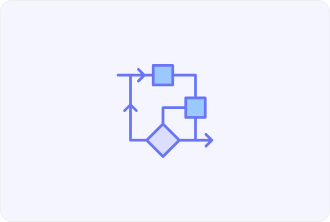Control Flow Definition

Control flow – is an order how instructions or statements get executed in a program. It is basically the command of the order of program execution in the various parts of the code. Control Flow is an important aspect of providing direction to data, more so regulating how a program would behave based on certain conditions—making decisions in a sequence. These mechanisms contain branching, looping, condition fulfillment, etc.
The mechanisms include, amongst others: branching, the execution of some blocks of code in instances when a condition is either true or false; looping, the execution of some blocks of code until some conditions stated therein are met or when some certain number of iterations have been carried out, and conditional execution, e.g., in cases where the conditional statements have borne the needed outcome. Flow Control structures include if statements, switch statements, loops (for, while, do-while), and function calls, of course. The other structures give a possibility to the programmer to implement any complex algorithms and even add clever logic to the program.